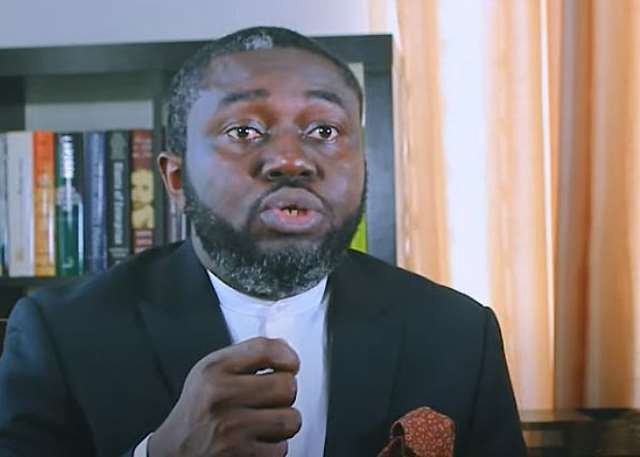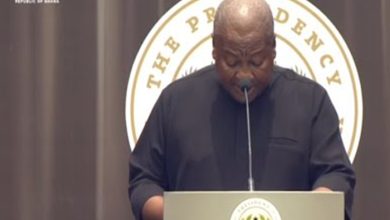CJ Torkornoo’s Removal Is a Reminder That Leadership Without Courage Corrodes Institutions – Oliver Barker

Prominent social activist and legal practitioner, Oliver Barker-Vormawor, has described the removal of suspended Chief Justice, Gertrude Araba Esaaba Sackey Torkornoo, as the “closing act of a disappointing chapter,” rather than a victory. Barker-Vormawor, a leading member of the Democracy Hub, offered a detailed critique of the former Chief Justice’s tenure.
According to his post on X (formerly Twitter), he had a “front row seat through the process” that led to the Chief Justice’s removal. Despite the outcome, he emphasized that there was “nothing to celebrate.” He contends that Justice Torkornoo’s removal is not a victory but a conclusion to a deeply disappointing period for the nation’s judiciary.
Barker-Vormawor asserted that Justice Torkornoo, while holding the highest judicial office, failed to demonstrate the necessary courage and integrity at a time when they were “desperately needed.” He accused her “leadership” of frequently choosing “silence when the people cried out for answers.” This, he claims, enabled “mampam’s worst impulses” and was motivated by a preference for “the convenience of power.”
Related Stories
Can President Mahama Remove Chief Justice Torkornoo? Everything You Need To Know
Mahama Given 3 Months To Revoke All Mining Licenses Issued By Akufo-Addo
He further detailed his disappointment by stating that instead of acting as the “guardian of our Constitution,” Torkornoo presided over a judiciary that had become increasingly characterized by “mistrust and estrangement.” He alleged that the judiciary under her leadership was susceptible to “fixing and removing judges as political paymasters called for.”
The activist emphasized that the office of the Chief Justice demands more, as it is meant to be the “moral compass of the Republic.” He predicted that her tenure would be remembered for missed opportunities and for the office becoming a “fortress for the regime” instead of a “shield for the weak.”
In the midst of his strong criticisms, Barker-Vormawor commended the committee of her peers that investigated the petition. He praised their decision to choose “duty over expedience” in the face of pressure and deliberate misinformation. He noted their “restraint and quiet stoicism” as qualities that “preserved the dignity of the process,” despite what he referred to as Araba’s “best efforts to ensure the opposite.”
Finally, Oliver Barker concluded his statement by reflecting on the broader implications of her removal. He described it as a reminder that “leadership without courage corrodes institutions from within.” Barker-Vormawor also expressed a hope that the event would mark the end of not just a person’s time in office but also the “lack of confidence in the idea that justice in this Republic can ever be impartial and bold.”
Read his full statement below;
1. A chief justice has been removed. But as someone who has had a front row seat through the process, hear me clearly, when I say there is nothing to celebrate here.
2. The removal of the Chief Justice is not a victory, but the closing act of a disappointing chapter. Araba held the highest seat of justice at a time when courage and integrity were desperately needed, yet too often her “leadership” chose silence when the people cried out for answers. She enabled mampam’s worst impulses and chose the convenience of power.
3. Instead of standing as the guardian of our Constitution, she presided over a judiciary that slipped further into mistrust and estrangement. Fixing and removing judges as political paymasters called for.
4. It is all the more disappointing because the office she held demanded more. The Chief Justice is meant to be the moral compass of the Republic. Yet her tenure will be remembered for opportunities missed; for moments when the Office could have been a shield for the weak, but too often became a fortress for the regime.
5. In the midst of this, it is important that we commend the committee of her peers who, in the face of pressure and deliberate misinformation, chose duty over expedience. I am certain that their recommendation was not an easy call, but their restraint and quiet stoicism preserved the dignity of the process, despite Araba’s own best efforts to ensure the opposite.
6. Sadly? Araba’s removal is a reminder that leadership without courage corrodes institutions from within. It is my prayer that what has fallen today is not just a person but also the lack of confidence in the idea that justice in this Republic can ever be impartial and bold.
7. May we find our path to restoring faith soon to the Judiciary before it is too late. Araba is gone, but her signature and the culture she symbolizes remains stuck on every wall, like dried blood.
8. Our Judiciary is not fit for purpose. Reform it or we will perish.
9. Let us not sweep the cracks under the carpet. I hope the 4th Republic learns from the fate of the 1st.
Suspended Chief Justice, Gertrude Torkornoo Sacked
President John Dramani Mahama, in accordance with Article 146(9) of the 1992 Constitution, officially removed Chief Justice Her Ladyship Justice Gertrude Araba Esaaba Sackey Torkornoo from office on September 1, 2025.
According to a statement from the presidency, the removal was a direct result of the Pwamang Committee’s findings. The committee, established under Article 146(6) to investigate a petition by Ghanaian citizen Daniel Ofori, found that “the grounds of stated misbehavior under Article 146(1) had been established” and consequently recommended her dismissal.
Mahama Given 3 Months To Revoke All Mining Licenses Issued By Akufo-Addo




